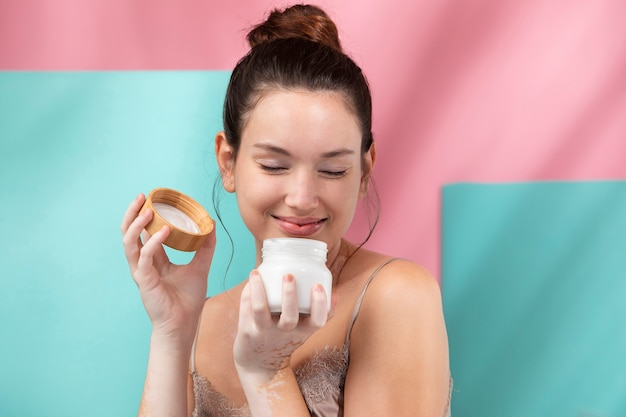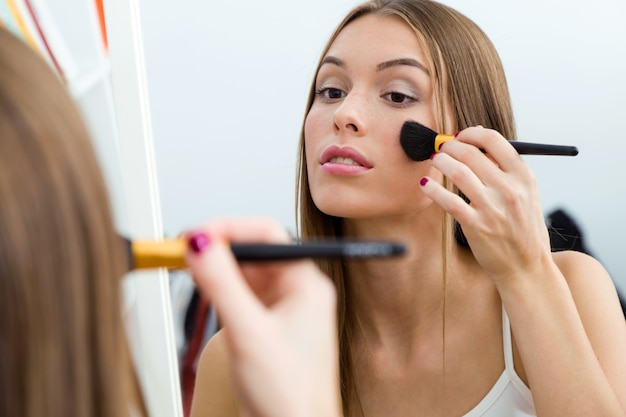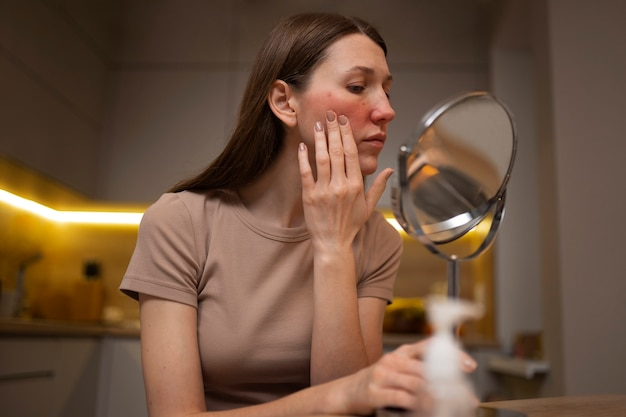Discover the magic of probiotics for beautiful skin
Probiotics are often associated with digestive health and immunity, but did you know that they can also be beneficial for your skin? In recent years, probiotics have become a popular skincare ingredient, with many brands incorporating them into their products. In this blog post, we will explore the benefits of incorporating probiotics into your skincare routine.
Probiotics can help to balance the skin’s microbiome
The skin is home to trillions of microorganisms, collectively known as the skin microbiome. This microbiome is a complex ecosystem that plays a crucial role in maintaining healthy skin. The microbiome can be disrupted by factors such as harsh cleansers, environmental pollutants, and antibiotics, leading to skin problems such as acne, rosacea, and eczema.

Probiotics, when applied topically, can help to restore balance to the skin’s microbiome. They work by introducing beneficial bacteria to the skin, which can crowd out harmful bacteria and restore a healthy balance. This can help to improve the overall health of the skin and reduce the risk of skin problems.
Probiotics can strengthen the skin barrier
The skin barrier is the outermost layer of the skin, and it plays a vital role in protecting the skin from external factors such as pollution, UV radiation, and bacteria. A weakened skin barrier can lead to dryness, sensitivity, and inflammation.
Probiotics can help to strengthen the skin barrier by increasing the production of ceramides. Ceramides are lipids that are naturally present in the skin, and they help to keep the skin hydrated and protected. Probiotics can stimulate the production of ceramides, which can help to strengthen the skin barrier and improve its function.
Probiotics can reduce inflammation
Inflammation is a common skin problem that can be caused by a variety of factors, including environmental pollutants, UV radiation, and stress. Inflammation can lead to redness, swelling, and irritation, and it can contribute to the development of skin problems such as acne and rosacea.
Probiotics can help to reduce inflammation by modulating the immune response in the skin. They can help to decrease the production of inflammatory cytokines, which can reduce the severity of inflammation and improve the overall health of the skin.
Probiotics can improve the appearance of aging skin
As we age, our skin undergoes a variety of changes, including a decrease in collagen production, a loss of elasticity, and an increase in dryness. These changes can contribute to the development of wrinkles, fine lines, and sagging skin.
Probiotics can help to improve the appearance of aging skin by stimulating collagen production and increasing skin hydration. They can also help to reduce the production of enzymes that break down collagen, which can help to prevent further damage to the skin.
Conclusion
Incorporating probiotics into your skincare routine can provide a variety of benefits for your skin. They can help to balance the skin’s microbiome, strengthen the skin barrier, reduce inflammation, and improve the appearance of aging skin. Probiotics can be found in a variety of skincare products, including cleansers, serums, and moisturizers. It is important to choose products that contain live, active cultures of probiotics to ensure their effectiveness.
As with any skincare ingredient, it is important to patch test new products and to consult with a dermatologist if you have any concerns about your skin. By incorporating probiotics into your skincare routine, you can help to promote healthy, radiant skin that looks and feels its best.




